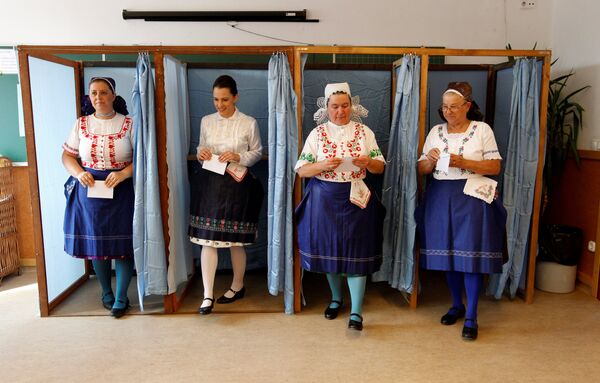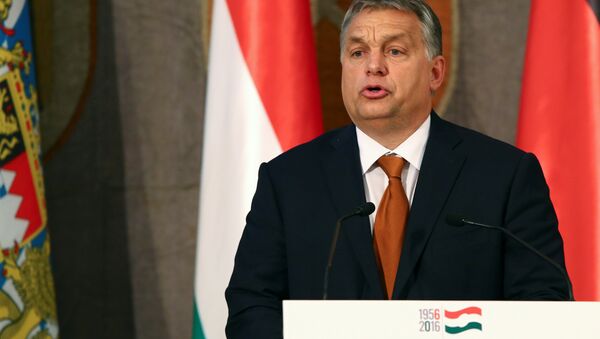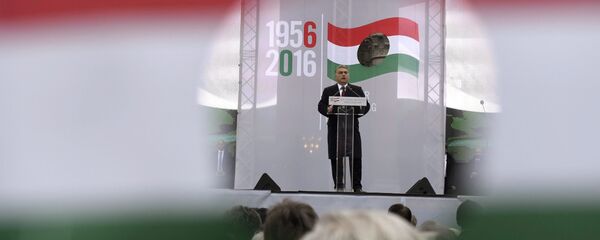The European Commission is attempting to impose mandatory resettlement quotas on Hungary and in response, the country's PM is threatening to sue them.
In a radio interview, PM Orban said that if the European Commission did not drop the idea of mandatory refugee quotas, then Hungary would have no option but to resist the EU's decision and sue the Commission.
"There will be a serious legal debate on whether a foreign population can be imposed on the people of an EU member state against its will. This will be a big battle, and for this we need the (amended) constitution," Orban said in a recent state radio interview.
He also pointed out that his country will use the results of a recent referendum, in which the majority of the Hungarian people rejected the the desire to resettle refugees, during EU negotiations over quotas.
In addition to this, the vice chairman of the Hungarian National Assembly's Committee on Foreign Affairs, Marton Gyongyosi, said the EU is unlikely to impose any kind of punishment on Hungary, following the adoption by the Hungarian Parliament of amendments to the constitution, aimed at blocking the EU migrant relocation scheme.
Critics say that Hungary's PM is likely to fail in his attempt to prevent the country from taking part in the EU's resettlement program as the voter turnout was so low that the referendum result is seen by many as not legally binding.
However, 3.3 million voters or more than 98 percent of those who cast ballots, did favor the proposal to reject refugees.
Orban's government spent an estimated US$40 million on the referendum alone.

This is not the first time the Hungarian PM has questioned the motives of the European Commission concerning the migrant crisis.
In 2015, Orban sealed the country's southern borders with a razor-wire fence and thousands of army as well as police officers were deployed, to stop the influx of refugees escaping conflict zones in the Middle East and North Africa.
Orban responded to criticism following the decision to build a fence, saying that the country would be overrun by Muslims, which posed a real threat to Hungary's Christian roots.
"That is an important question, because Europe and European culture have Christian roots. Or is it not already and in itself alarming that Europe's Christian culture is barely in a position to uphold Europe's own Christian values?" Orban was quoted as saying.
At such a critical time for Europe, which continues to face a massive influx of migrants as well as the threat of Daesh — also known as ISIL — related terrorism, it appears that Viktor Orban is just one of a number of European politicians, unwilling to cave in and prepared to challenge the EU Commission over migrant quotas.




